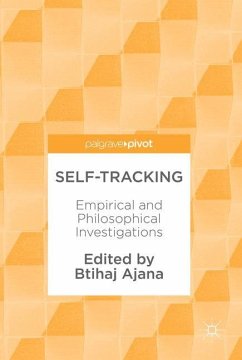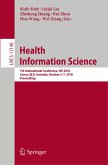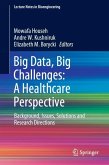This book provides an empirical and philosophical investigation of self-tracking practices. In recent years, there has been an explosion of apps and devices that enable the data capturing and monitoring of everyday activities, behaviours and habits. Encouraged by movements such as the Quantified Self, a growing number of people are embracing this culture of quantification and tracking in the spirit of improving their health and wellbeing.
The aim of this book is to enhance understanding of this fast-growing trend, bringing together scholars who are working at the forefront of the critical study of self-tracking practices. Each chapter provides a different conceptual lens through which one can examine these practices, while grounding the discussion in relevant empirical examples.
From phenomenology to discourse analysis, from questions of identity, privacy and agency to issues of surveillance and tracking at the workplace, this edi ted collection takes on a wide, and yet focused, approach to the timely topic of self-tracking. It constitutes a useful companion for scholars, students and everyday users interested in the Quantified Self phenomenon.
The aim of this book is to enhance understanding of this fast-growing trend, bringing together scholars who are working at the forefront of the critical study of self-tracking practices. Each chapter provides a different conceptual lens through which one can examine these practices, while grounding the discussion in relevant empirical examples.
From phenomenology to discourse analysis, from questions of identity, privacy and agency to issues of surveillance and tracking at the workplace, this edi ted collection takes on a wide, and yet focused, approach to the timely topic of self-tracking. It constitutes a useful companion for scholars, students and everyday users interested in the Quantified Self phenomenon.
"This is an eye-opening book. Our digital selves are so used to data sharing, often without questioning how this data is used, where it is stored and, in the end, for what purpose. I am not negative towards these advanced technologies, e.g. GPS. But having read this book ... makes me think about - not only how our modern societies and self-representations are constructed- but also - how should we apprehend them and to what extent accept them. I recommend this book warmly." (Anne L.C. Runehov, ESSSAT News & Reviews, Vol. 31 (2), June, 2021)








